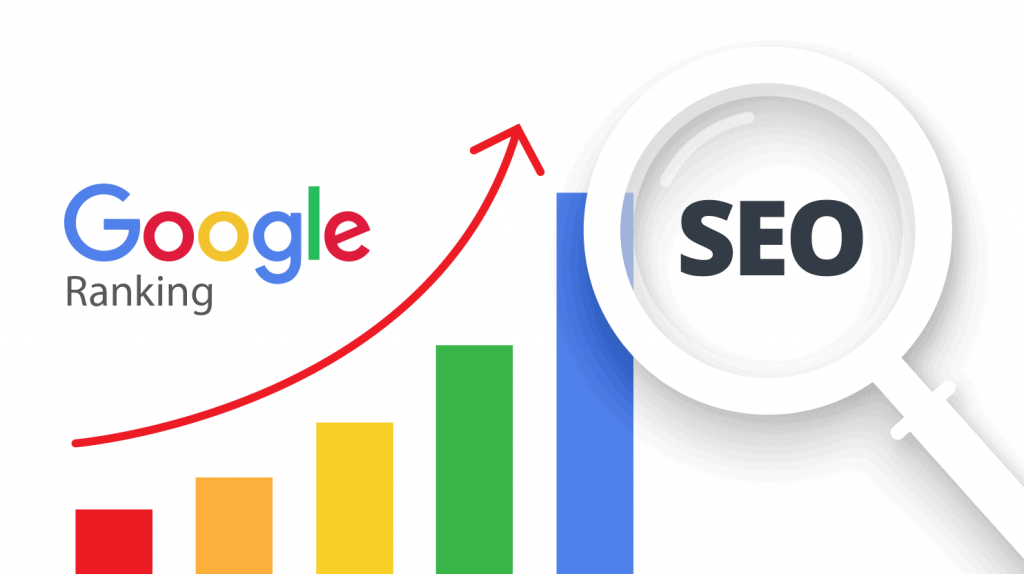Test SEO ranking has become an essential practice for anyone looking to improve their website's visibility on search engines. With billions of websites competing for attention, understanding how to test and optimize your SEO ranking is crucial for success in the digital world. Whether you're a beginner or an experienced digital marketer, this guide will provide you with comprehensive insights and actionable strategies to enhance your website's search engine performance.
As search engines like Google continue to evolve, so do the algorithms that determine how websites are ranked. Testing your SEO ranking regularly ensures that your website remains competitive and visible to your target audience. This guide delves into the importance of SEO testing and outlines practical steps to help you achieve better rankings.
By the end of this article, you'll have a clear understanding of the key factors affecting SEO performance, the tools available for testing, and strategies to implement for long-term success. Let's dive into the world of SEO testing and discover how it can revolutionize your online presence.
Read also:Discover The Magic Behind The Cast Of Dirty Dancing Everything You Need To Know
Table of Contents
- The Importance of Test SEO Ranking
- Understanding the Basics of SEO Ranking
- Top Tools for Testing SEO Ranking
- Key Factors Affecting SEO Ranking
- On-Page SEO Strategies
- Off-Page SEO Strategies
- Technical SEO Considerations
- Mobile Optimization and SEO
- Key Metrics to Track in SEO Testing
- Conclusion and Next Steps
The Importance of Test SEO Ranking
Testing your SEO ranking is more than just a routine task; it's a critical component of your overall digital marketing strategy. Search engines like Google use complex algorithms to determine which websites deserve top positions in search results. By regularly testing your SEO ranking, you gain valuable insights into how well your website is performing and where improvements can be made.
Why Should You Test SEO Ranking?
- Identify areas of improvement in your website's performance.
- Stay ahead of competitors by monitoring their ranking positions.
- Ensure your website remains compliant with the latest search engine guidelines.
- Improve user experience by addressing technical issues affecting SEO.
Regular testing also helps you adapt to changes in search engine algorithms, ensuring that your website remains relevant and visible to your target audience.
Understanding the Basics of SEO Ranking
Before diving into the specifics of testing SEO ranking, it's important to understand the basics of SEO itself. SEO, or Search Engine Optimization, refers to the practice of optimizing a website to rank higher in search engine results pages (SERPs). This involves a combination of on-page, off-page, and technical optimization strategies.
What Affects SEO Ranking?
Several factors influence how search engines rank websites, including:
- Content quality and relevance.
- Keyword optimization and usage.
- Backlink profile and authority.
- Website speed and mobile-friendliness.
Understanding these factors is the first step toward improving your website's SEO ranking.
Top Tools for Testing SEO Ranking
There are numerous tools available to help you test and analyze your SEO ranking. These tools provide valuable data and insights into your website's performance, allowing you to make informed decisions about optimization strategies.
Read also:Unveiling The Mystery Of Rico Priem 911 Character Name A Deep Dive Into The Story
Popular SEO Testing Tools
- Google Search Console
- Ahrefs
- Moz Pro
- Semrush
- SEMrush
Each of these tools offers unique features and benefits, so it's worth exploring them to find the one that best suits your needs.
Key Factors Affecting SEO Ranking
Several key factors play a significant role in determining your website's SEO ranking. Understanding these factors is crucial for developing effective optimization strategies.
Content Quality and Relevance
High-quality, relevant content is one of the most important factors affecting SEO ranking. Search engines prioritize websites that provide valuable information to users. Ensure your content is well-researched, engaging, and aligned with your target audience's needs.
Keyword Optimization
Proper keyword usage is essential for improving your website's visibility. Use a mix of primary and long-tail keywords naturally throughout your content, ensuring that they enhance readability and relevance.
On-Page SEO Strategies
On-page SEO involves optimizing individual web pages to rank higher in search engine results. This includes optimizing meta tags, headers, images, and content structure.
Optimizing Meta Tags
Meta titles and descriptions provide search engines with important information about your content. Ensure they are concise, descriptive, and include relevant keywords.
Header Tags
Using header tags (H1, H2, H3) effectively helps structure your content and improves readability. Include your primary keyword in the H1 tag and variations in subsequent headers.
Off-Page SEO Strategies
Off-page SEO focuses on activities outside your website that influence its ranking. This includes building high-quality backlinks and improving your website's authority.
Building a Strong Backlink Profile
Backlinks from authoritative websites signal to search engines that your content is trustworthy and valuable. Focus on acquiring backlinks from relevant, high-domain-authority sites.
Technical SEO Considerations
Technical SEO involves optimizing your website's infrastructure to improve crawling and indexing by search engines. This includes optimizing site speed, mobile-friendliness, and security.
Improving Website Speed
Website speed is a critical ranking factor. Use tools like Google PageSpeed Insights to identify and address performance issues, ensuring your site loads quickly for users.
Mobile Optimization and SEO
With more users accessing the internet via mobile devices, mobile optimization is essential for SEO success. Ensure your website is responsive and provides a seamless user experience across all devices.
Implementing Mobile-Friendly Design
Adopting a mobile-first approach to design ensures that your website is optimized for mobile users. Use responsive design techniques to adapt your content to different screen sizes.
Key Metrics to Track in SEO Testing
Tracking the right metrics is crucial for measuring the success of your SEO efforts. Focus on metrics that provide actionable insights into your website's performance.
Important SEO Metrics
- Organic traffic
- Keyword rankings
- Backlink count and quality
- Page load speed
- Mobile usability
Regularly monitoring these metrics helps you identify trends and make data-driven decisions to improve your SEO ranking.
Conclusion and Next Steps
Testing your SEO ranking is a vital practice for anyone looking to improve their website's visibility and performance. By understanding the key factors affecting SEO ranking and implementing effective optimization strategies, you can achieve better results in search engine rankings.
Take Action: Start by testing your current SEO ranking using the tools and strategies outlined in this guide. Share your experience and insights in the comments below, and don't forget to explore other articles on our site for more digital marketing tips and tricks.
Remember, SEO is an ongoing process. Stay committed to regular testing and optimization, and watch your website's performance soar.

